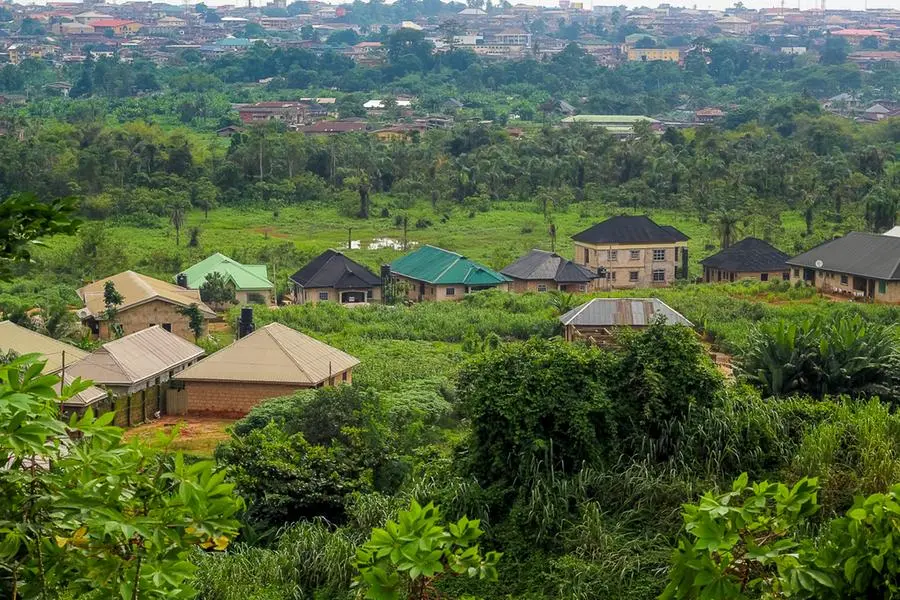PHOTO
Experts at the public presentation of a 10-year roadmap for Nigeria by the NTU-SBF Centre for African Studies in partnership with Tolaram and Nanyang Technology University, Singapore, have said Nigeria’s future prosperity is dependent on its ability to sustain an agro-industrial economy powered by a productive population.
Presenting the report on Monday, Amit Jain, author and director of the NTU-SBF Centre for African Studies, said, “Nigeria needs to curb inflation by reducing the value of the naira, using multiple exchange rates, and ending fuel subsidies, which they have already done.
The Nigerian government should stay focused on reducing inflation; the exchange rate should go hand in hand with monetary policy,” Jain said.
Related PostsOyo govt restates commitment to safety, welfare of Corps membersEshew corruption, indiscipline in maintaining law, order, Gombe CP warns personnelHIV /AIDS: Over 46,000 test positive between 2020-2023 — Ogun Health Commissioner
Two out of every 10 children born in Sub-Saharan Africa is a Nigerian, he stated, stressing that the population is growing so fast that by 2050, Nigeria will become the third most populated country in the world, but this should be turned into an asset.
“So what we have been telling our stakeholders in Asia is that irrespective of what profession or business you’re in, whether you are making baby diapers or shampoos, whether you’re a trainer or financier, you simply cannot afford to overlook Nigeria, “Jain stated.
He regretted that Nigeria is in a state of economic crisis with foreign reserves shrinking and fuel subsidies removed abruptly, perhaps not done too carefully.
Doyin Salami, a foremost economist, said during a panel session that Nigeria’s future prosperity is dependent on its ability to sustain an agro-industrial economy.
Salami, who was chief economic adviser to former President Muhammadu Buhari, said, “Education is where Nigeria’s biggest investment must lie; Nigeria’s future prosperity is dependent on its ability to sustain an agro-industrial economy. ”
President Bola Tinubu recently welcomed an investment of $520 million in specialised agro-processing zones by the African Development Bank, saying the agro-industrial project strengthens an area of the country’s competitive advantage.
Salami said if Nigeria’s population is growing at the current rate, the country’s agriculture sector should not be doing half of the population growth.
Data from the World Bank shows that the population of Nigeria is expected to increase from 206 million people in 2020 to 263 million in 2030, 401 million in 2050, and a massive 733 million in 2050.
“We can’t underestimate the population,” Salami said, adding that it would be difficult to stabilise the economy at the current population growth rate.
“If we can solve education, the speed at which our population will grow may come down. With education, you can delay the commencement of population growth for about five years,” he said. “If the growing population will be positive for Nigeria, it needs to see and take advantage of the opportunities.”
Another panellist, Funke Opeke, founder and CEO of MainOne, said the current administration has taken bold steps, but the rest of the plan has not been fully spelt out.
She said that with high inflation in the country, there is a need to boost agriculture, transportation, and electricity.
Farouk Gumel, executive director and vice chairman of Africa at Tropical General Investments Group, said Nigeria has all the policies, but how to implement them to touch people is where there is a disconnect.
“Our solution has to have a humanitarian angle to it,” he said, pointing out that infrastructure in rural areas is weak and farm bandits are in the rural areas.
“Go to the grassroots area to implement actionable plans; everyone has a role to play,” he said.
Copyright © 2022 Nigerian Tribune Provided by SyndiGate Media Inc. (Syndigate.info).




















